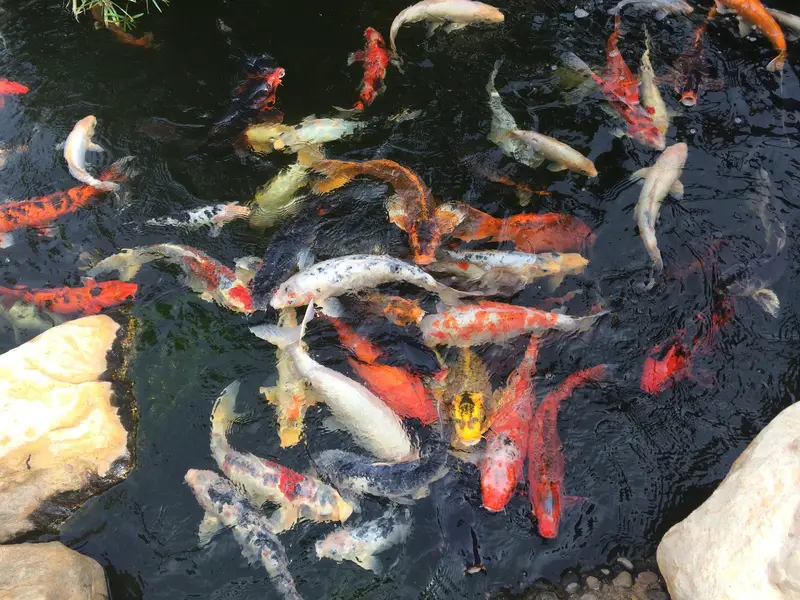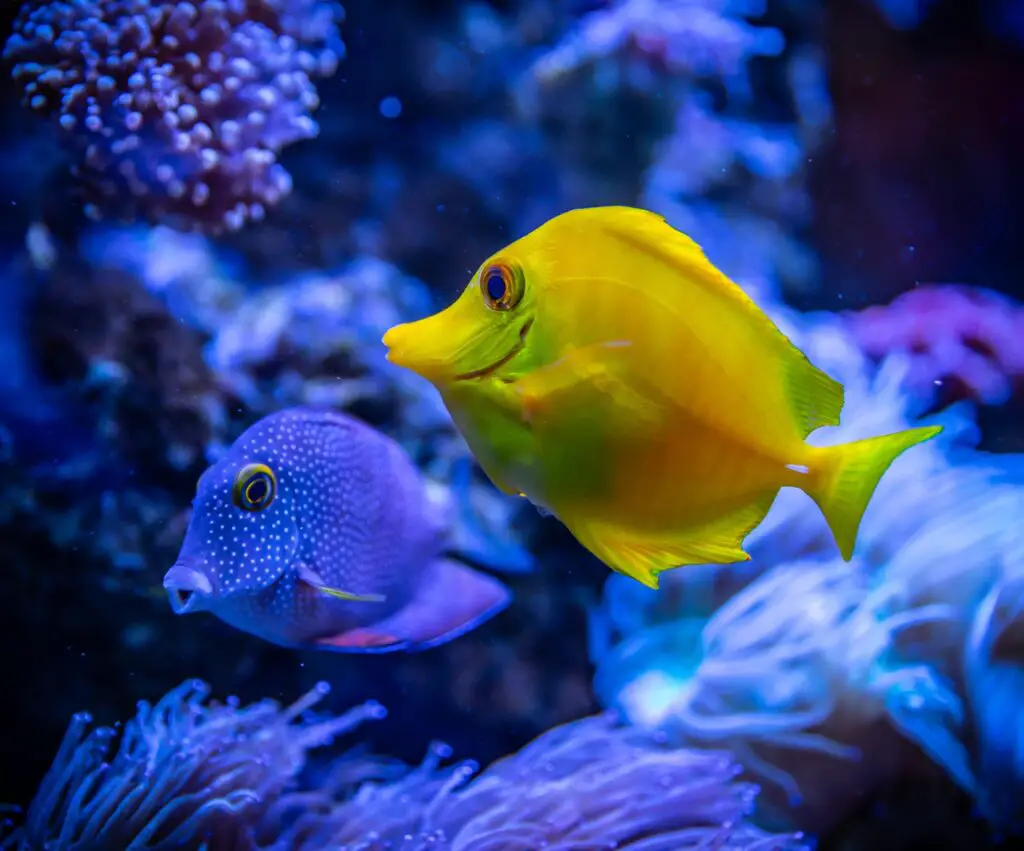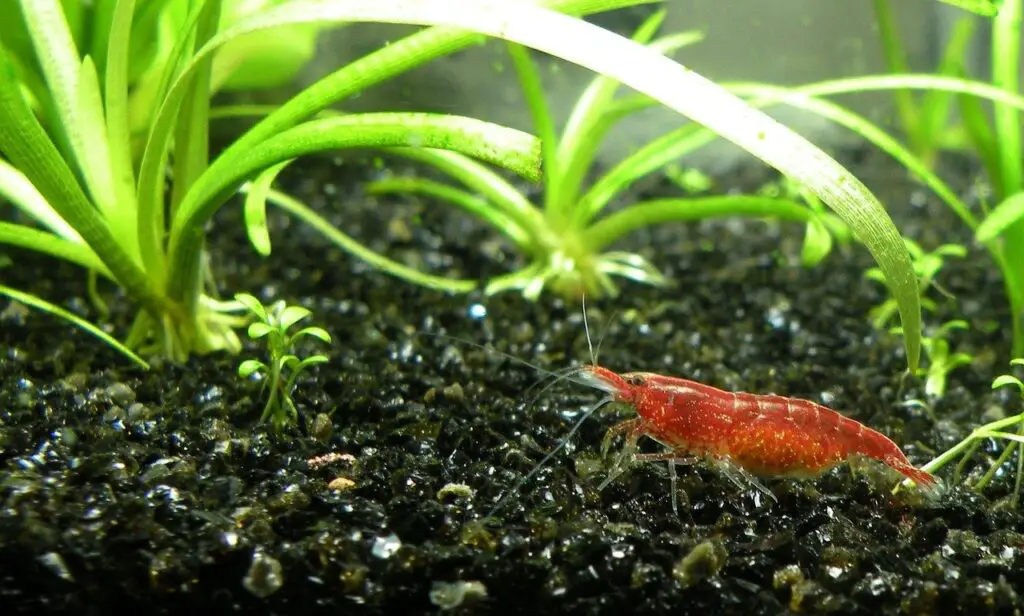So, you’re walking past a pond that was created by someone you know only a few weeks ago and you see that the waterbody already has fish in it. How on earth did that happen?
In the majority of cases, humans stock the ponds with fish. Fish eggs can also stick to an animal’s fur, while birds might eat the eggs and then poop them out next to the pond. Moreover, fish can make their way into the new pond during the rainy season when small streams between different bodies of water appear.
Can Fish Suddenly Appear in a Pond?
In a nutshell, fish can suddenly appear in ponds. In the majority of cases, this would actually be done by another human who simply wants to stock the pond. In fact, stocking manmade ponds has become a routine in the majority of states as this has quite a few benefits to it:
- Makes fishing available – after all, you can’t really swim in every single pond, so why even ‘keep’ it, if it can’t be used for fishing, right?
- Improves the aesthetic value of the pond – adding fish to a body of water is one of the ways of improving how the pond looks as these creatures will add more color and movement to the water
- Helps get rid of mosquitoes – there are plenty of mosquito-eating fish; together with birds and other insects, fish can serve as natural mosquito control
By the way, a lot of remote lakes in the United States are stocked by a network of volunteers and the forest service. The majority of such bodies of water are hand-stocked, but the most heavily-used lakes and ponds can be stocked up with the help of helicopters and planes.
Can Birds Carry Fish Eggs from Pond to Pond?
Birds that spend their time next to water might end up carrying fish eggs from one pond to the other. Some eggs are sticky and can survive for quite a while without water. If they get stuck onto the birds’ feathers or feet then, in theory, the eggs might end up in another waterbody.
At the moment, there is a lack of evidence to support this theory. But that does not mean that birds have nothing to do with the dispersal of fish eggs.
How Do Fish Get into Man-Made Lakes?
- A human stocked the lake
In the absolute majority of cases, people will make sure that fish get into the lake. It might be done on purpose by stocking up the ponds with valuable species or by accident. For example, it is not rare for fishermen to drop fish roe or fish into a new pond while carrying their gear.
- Other creatures helped the fish get into the lake
Birds can carry not only fish eggs but also actual fish. At one point, the bird might drop its prey and if it the fish lands in a lake, it might survive and continue to thrive.
There are also plenty of animals that move from one lake to the other. They can easily carry the sticky fish eggs on their feet and fur which certainly does contribute to the ‘migration’ of fish species.
- The fish were already in the water
Sometimes, ponds and lakes form after, for example, a dam is made by humans. In such a case, the new body of water that forms next to the dam is already a part of the ecosystem and it has not only algae and bugs but also fish (or at least fish eggs) in it.
- The fish brought itself to the man-made lake
There are certain species that can survive out of the water (like the walking catfish, for example). These fish are literally able to travel from lake to lake if the ponds are not too far away from one another.
Can Birds Poop Fish Eggs?
Fish eggs can survive the journey through a bird’s digestive tract. A few years ago, Hungarian researchers fed live fish eggs to Mallards. They then found that 0.2% of the eggs showed up in the feces and about a fifth of these eggs were able to hatch.
That doesn’t seem like a huge number, but Mallards are incredibly widespread and even with this extremely low percentage, you will be getting quite a lot of healthy fish in a new pond.
Practically all birds love fish eggs. If every single one of them is able to defecate at least a few fertilized eggs, then no wonder that practically all of the bodies of water are full of fish.
By the way, Mallards can fly hundreds of miles which means that the eggs would definitely get dispersed to lakes that are far away from where they were consumed.
Do Ducks Carry Fish Eggs from Pond to Pond?
Ducks are more likely to contribute to the dispersion of fish eggs as they are amazing divers. These birds can scavenge for vegetation down to around 10 feet.
It is highly unlikely for a fish egg to stick to the feathers of a duck that is diving, but the bird might end up eating the eggs. As we have already figured out, some of those will get through the duck’s digestive tract and then hatch next to another waterbody.
The ducks that live next to wetlands can also end up carrying small fish from one lake to the other. Once the bird catches its prey it can decide to carry it to another place and during the travel, the duck might accidentally drop the fish into another pond.
Can Fish Eggs Be Transported by Rain?
In some cases, the isolated ponds that did not have any fish in them can get filled by water runoff during the rainy season. This runoff usually carries fish eggs, algae, and, at times, actual grown-up fish. By the way, this is a relatively common way of fish dispersal in nature.
The eggs can also get transported by mini-tornados that get formed during heavy rain. Even though this method is quite rarer, a few fish eggs can actually get carried away to another waterbody by the whirlwinds.



